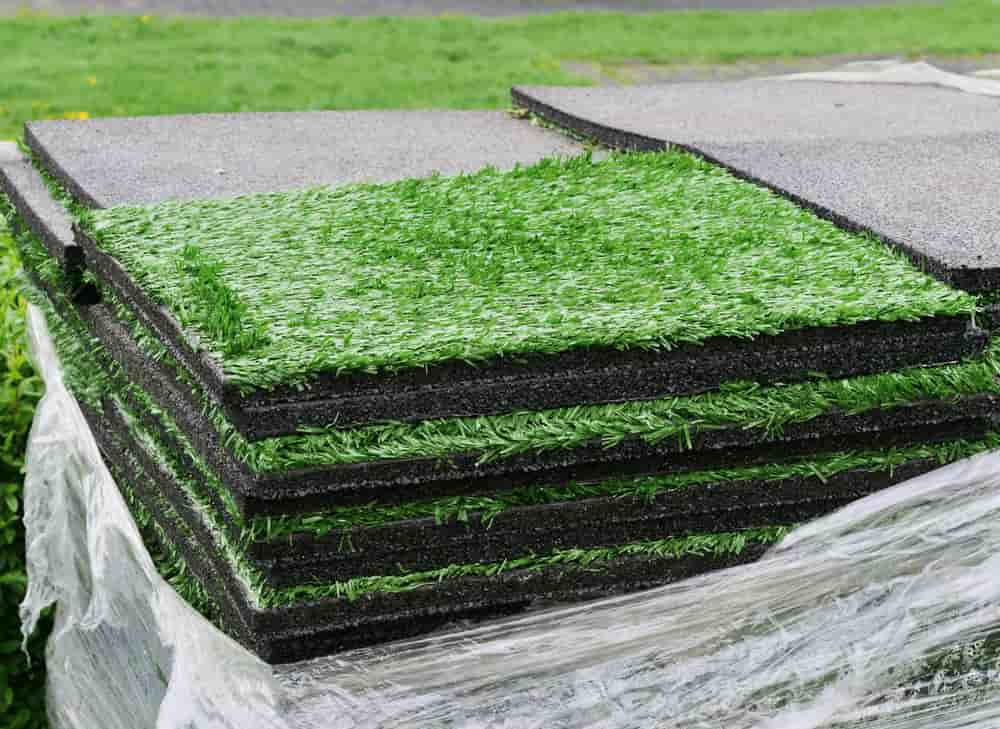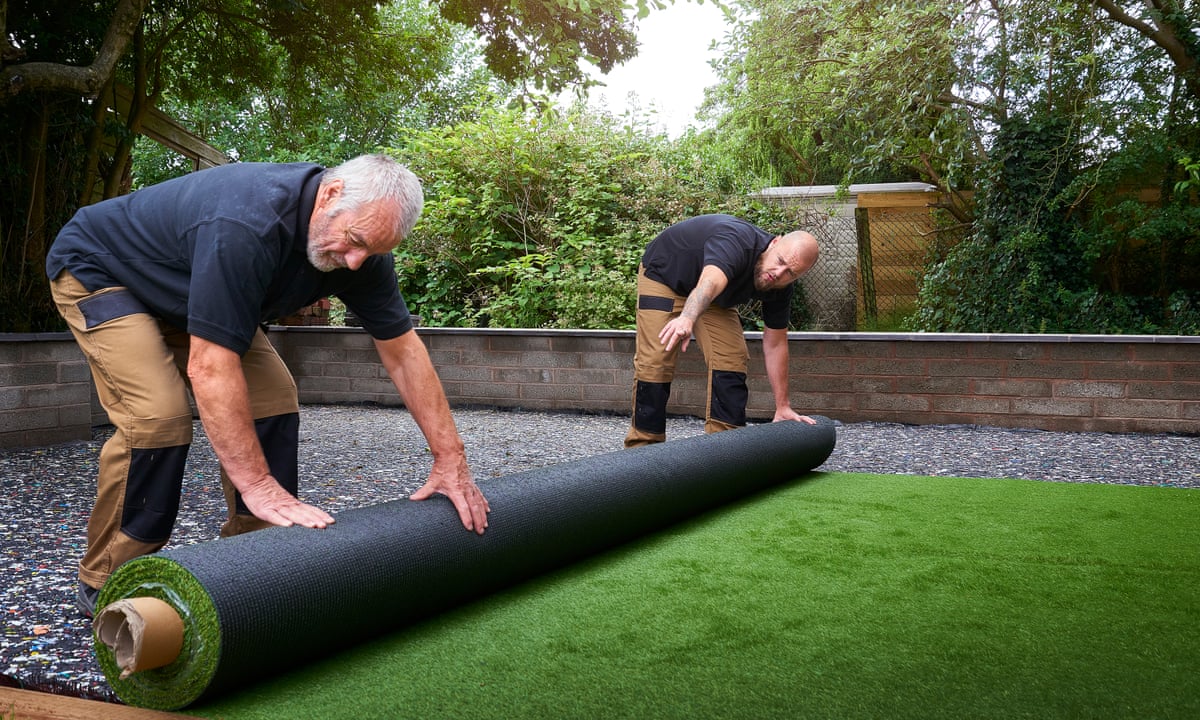Sustainable Arizona Artificial Turf for a Year-Round Lush Green Lawn
Sustainable Arizona Artificial Turf for a Year-Round Lush Green Lawn
Blog Article
Delve Into the Environmental Conveniences of Opting for Synthetic Grass Solutions
The fostering of synthetic grass services offers an engaging chance to deal with pressing environmental obstacles. By significantly decreasing water use and reducing the application of hazardous chemicals, these choices not just promote lasting landscaping however also secure neighborhood ecological communities. The lower carbon footprint linked with lowered maintenance activities contributes to a much more lasting method to land management. The effects of these benefits prolong past plain conservation efforts, raising questions concerning their long-term effect on habitat preservation and total ecological balance. Checking out these measurements reveals a complex interplay worth taking into consideration.
Water Conservation Advantages
One of the most significant advantages of synthetic grass is its capacity to preserve water. Typical lawn yards need considerable irrigation, especially in locations vulnerable to dry spell or water limitations. In contrast, synthetic grass does not require watering, considerably lowering the overall need for water resources. This feature is especially valuable in deserts where water scarcity is a pressing problem.
By eliminating the requirement for regular watering, man-made turf adds to lasting landscape methods and aids reduce the ecological impact of extreme water intake. The preservation of water extends to the reduction of overflow, which can lead to dirt erosion and waterway contamination.
In addition, the installation of synthetic grass allows towns and home owners to designate water sources more efficiently, concentrating on necessary uses such as drinking water and agriculture. The change in the direction of artificial grass not just promotes responsible water usage but likewise lines up with wider ecological objectives targeted at maintaining natural deposits.
As areas increasingly prioritize sustainability, the water conservation advantages of man-made grass present an engaging instance for its fostering in household and industrial landscaping jobs.
Minimized Chemical Usage
The shift to fabricated turf considerably decreases the reliance on chemical treatments frequently utilized in all-natural grass upkeep. Conventional grass management normally entails the application of herbicides, chemicals, and fertilizers to advertise development and control bugs. These chemicals can present dangers to human wellness, neighborhood wildlife, and the environment, adding to dirt and water contamination.
In contrast, man-made grass eliminates the need for these damaging substances. As soon as set up, it requires marginal maintenance, mostly containing regular cleansing and infrequent infill replenishment. This decrease in chemical usage not just benefits the immediate environment however also adds to wider ecological security. By decreasing the launch of synthetic substances into the ecological community, synthetic grass promotes much healthier dirt and water supply.
Additionally, the lack of chemical drainage connected with man-made lawn installments aids safeguard local rivers from contamination, sustaining aquatic life and maintaining biodiversity. Artificial turf companies phoenix. As areas progressively prioritize sustainable techniques, selecting synthetic grass provides a viable service that lines up with environmental conservation goals. Via this change, homeowner can take pleasure in lavish environment-friendly areas without jeopardizing eco-friendly wellness, paving the way for a more sustainable future
Lower Carbon Footprint

Furthermore, the setup of synthetic grass can cause substantial water conservation. Natural lawns need significant amounts of water for watering, which not only includes in the view it carbon impact related to water removal and therapy however likewise pressures neighborhood water resources. On the other hand, synthetic grass needs minimal maintenance, requiring no watering, thus substantially lowering water use and its connected energy expenses.
Additionally, the longevity of synthetic grass contributes to its reduced carbon influence. With a life-span of approximately 15 years or even more, the requirement for regular replacements is diminished, causing much less waste and reduced energy consumption in production and dealing with traditional yard choices. Generally, man-made grass presents a lasting choice for ecologically conscious landscape design.
Environment Preservation
Habitat conservation is an essential factor to consider in the discussion over landscape design choices, particularly when contrasting synthetic turf to all-natural turf. All-natural lawn lawns often call for comprehensive upkeep, including the usage of fertilizers, pesticides, and herbicides, which can negatively affect local ecological communities. These chemicals can leach right into the soil and waterways, damaging native plants and fauna and interrupting local habitats.
On the other hand, man-made turf provides an opportunity to minimize the environmental impact of landscaping. By choosing artificial grass, homeowners can minimize the interruption of all-natural habitats related to standard yard treatment methods. Synthetic grass eliminates the requirement for damaging chemicals, consequently securing nearby wild animals and maintaining the honesty of bordering communities. The installment of artificial turf can lead to the conversion of former turf areas into even more biodiverse landscapes, such as pollinator yards or indigenous plant locations, which can sustain neighborhood wild animals.
Inevitably, the change to man-made lawn not only saves water and minimizes upkeep efforts but also cultivates a more unified partnership between human activities and the natural setting, advertising habitat preservation while doing so.
Long-Term Sustainability
Lasting sustainability is an essential factor in evaluating the benefits of man-made grass over conventional grass yards. One of the most substantial benefits of synthetic grass is click this link its toughness; it can last as much as 15-20 years with minimal upkeep, whereas all-natural grass calls for regular reseeding and replacement. This long life minimizes the webpage need for consistent resources, such as water, fertilizers, and pesticides, which are necessary for preserving a healthy and balanced turf yard.
Furthermore, synthetic lawn adds to a decrease in carbon discharges connected with yard care devices. Conventional grass typically require gas-powered mowers, leaners, and blowers, all of which add to air pollution. Turf installation phoenix az. On the other hand, artificial grass gets rid of the requirement for such devices, advertising a cleaner environment
In addition, the manufacturing of synthetic grass progressively makes use of recycled materials, boosting its sustainability profile. As producers embrace environmentally friendly methods, the ecological impact of synthetic grass remains to diminish.

Conclusion
The fostering of synthetic lawn options provides significant ecological advantages, consisting of considerable water preservation, minimized dependence on dangerous chemicals, and a reduced carbon impact. Artificial grass help in maintaining natural environments by minimizing land disruption and advertising lasting sustainability through the usage of durable materials. Jointly, these variables emphasize the capacity of synthetic grass to contribute favorably to ecological wellness and provide a feasible choice to conventional landscaping techniques in a significantly resource-conscious world.
In contrast, synthetic lawn does not require watering, dramatically decreasing the overall need for water sources. By decreasing the release of synthetic substances right into the ecosystem, synthetic grass advertises much healthier soil and water systems.
Furthermore, the installment of synthetic grass can result in significant water conservation. In contrast, synthetic turf needs very little maintenance, needing no watering, consequently dramatically reducing water use and its linked power costs.

Report this page